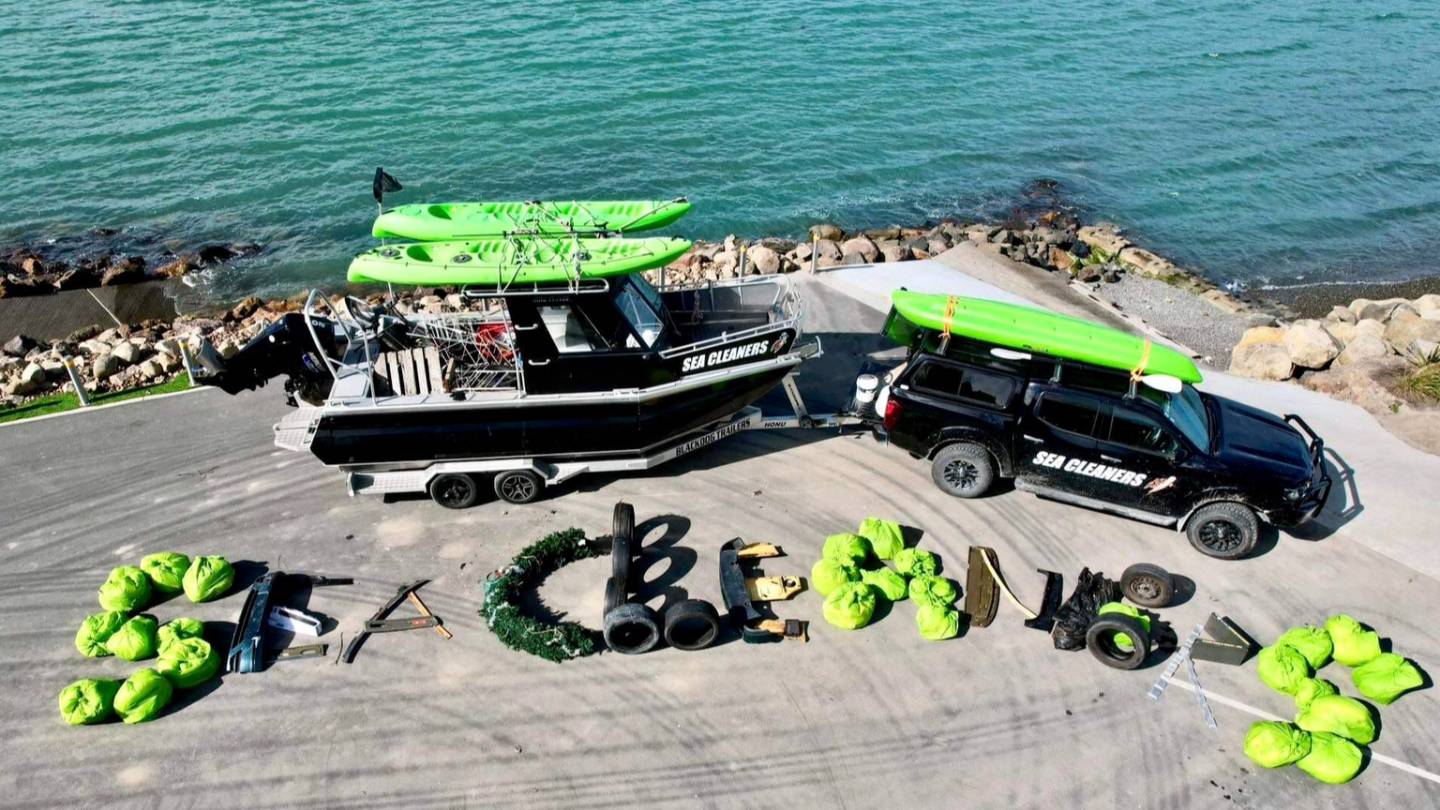TACKLING MARINE LITTLE TOGETHER
With some of the most breathtaking coastline in the world, it’s easy to see why Australians and New Zealanders are passionate about the ocean, and deeply concerned about marine debris and other plastic that ends up in it. Right now, our packaging is part of the problem.
This is unacceptable. It’s why we are committed to using less new plastic by using recycled plastic in our bottles and supporting recycling schemes. We also want to support partners and technologies that aim to reduce plastic pollution in our rivers and oceans.
North Island, New Zealand - Sea Cleaners
From collecting waste to educating on waste prevention, Sea Cleaners is a group of passionate people preserving the New Zealand coastline. Their long-term strategy is to educate people to dispose of their rubbish in eco-friendly ways, including recycling, and so not to harm the environment.
Like us, they know there is a problem of litter and rubbish entering our waterways and ultimately contaminating our coastlines and the sea. Since it started in 2002, Sea Cleaners has collected more than 127 million pieces of rubbish from New Zealand waters.
We’re proud to have been sponsoring those efforts since 2019, when The Coca‑Cola Foundation started a partnership with Sea Cleaners to help get more vessels on the water in and around Auckland, Hauraki Gulf and Kaipara Harbour.
Great Barrier Reef - Eco Barge Clean Seas
Environmentalist and skipper Libby Edge started Eco Barge Clean Seas in 2009 driven by a passion to protect the Great Barrier Reef from the impact of pollution.
Coca‑Cola Australia, with support from the Coca‑Cola Foundation, has been partnering with Eco Barge Clean Seas since 2018 to help clean up over 23,000kg of marine debris from the Great Barrier Reef. We’ve also helped ensure that much of the material dredged from the ocean does not end up in landfill.
We also connected the organisation with Plastic Collective, whose plastic recycling machine Shruder has been used to give new life to waste collected by Eco Barge.
Seabin Project – Sydney Harbour
The Seabin unit is a “trash skimmer” that acts as a floating, automatic garbage bin. Coca‑Cola partnered with Seabin Project in 2021 on their world-first Smarter Cities – Cleaner Oceans Pilot.
Furthering the support in 2021, the Coca‑Cola Foundation funded the operations of the Seabin Foundation’s first microplastics scientific laboratory, the Ocean Health Lab. The laboratory has been designed to be completely off-grid, and is contained in a 40ft, purpose-built, upcycled shipping container in Sydney.
The mobile laboratory is a pilot project to add key knowledge about microplastics and provide proof of concept for scalability alongside the Seabin City Program worldwide.
The Ocean Cleanup global partnership
Around the world rivers carry a huge amount of plastic and other waste into our oceans.
The Ocean Cleanup Interceptor is the first scalable solution to prevent plastic from entering the world’s oceans from rivers. The solar-powered robot extracts plastic autonomously and is capable of operating in many of the world’s most polluting rivers.
The global partnership between The Ocean Cleanup and Coca‑Cola brings together the technology and data-driven solutions of The Ocean Cleanup, and the global scale and network of Coca‑Cola.
The goal of the partnership is to test and validate different Interceptor solutions and technologies in river cleanup projects including Vietnam, Jamaica and Los Angeles, with future projects announced for the Chao Phraya river in, Thailand, Cisadaene in Indonesia and Rio Las Vacas, Guatemala. This is a crucial early phase that will then help The Ocean Cleanup scale toward their goal of cleaning 1,000 rivers responsible for 80% of the river plastic entering the world’s oceans.
The Can Tho River, Vietnam was one of the first rivers selected under the global partnership between the two organisations announced in June 2021. The initial success of the Mekong project has made it a blueprint for projects on other rivers around the world. Positioned downstream from the popular Can Tho floating market in the Mekong Delta region, the Interceptor has collected an estimated 120 tonnes of waste in its first year of deployment.
Beyond financial support, The Coca‑Cola Company has contributed to The Ocean Cleanup in Vietnam including driving on-the-ground awareness of the project and its mission, advocating for the project locally and providing waste management advice.
Earthwatch - Gulf of Carpentaria
The Gulf of Carpentaria in Australia’s far north covers 300,000 square kilometres of water. It’s a critical coastal habitat for an enormous range of marine animals and is a large carbon sink. This huge area is at risk from increasing amounts of marine litter.
A truly creative collaboration is assisting the Carpentaria Land Council, and Traditional Owners the Gangalidda, Garawa, Gkuthaarn, Kaiadilt, Kukatj, Kurtijar, Lardil, Waanyi, and Yangkaal peoples, to tackle marine litter.
Started in 2020, Coca‑Cola Australia Foundation funded pilot program Wetlands not Wastelands is a first-of-its-kind marine pollution program in the Gulf of Carpentaria.
The community-led program helps reduce marine pollution and recover and upcycle discarded plastic and other materials. The donation helps with recycling and also turning the plastic waste into commercial products.


